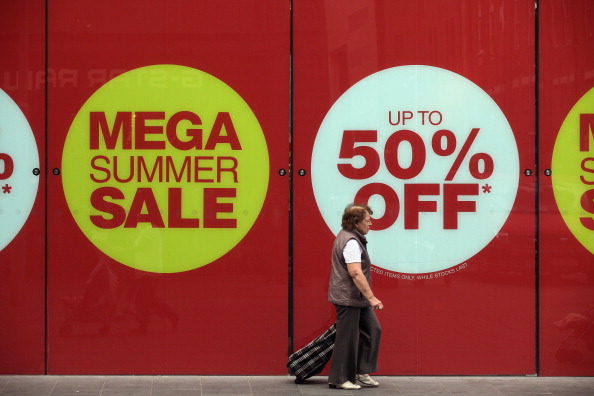UK retail sales unexpectedly fall in August

UK retail sales fell in August as British shoppers bought fewer goods than in July, defying expectations of zero growth in a worrying sign for the UK economy.
Read more: Cheaper computer games drag down UK inflation to three-year low
The quantity of goods bought in August fell by 0.2 per cent month on month after a 0.4 per cent rise in July, figures from the Office for National Statistics (ONS) showed today.
The ONS said non-store retailing – which is mainly online shopping – “was the largest contributor to this fall, partially offsetting the strong growth reported last month for this sector”.
Year on year, retail sales grew by 2.7 per cent in August, down from 3.4 per cent in July. The ONS said this was “a slowdown compared to the stronger growth experienced earlier in the year which peaked at 6.7 per cent in March”.
Yet the ONS said that monthly retail figures show a less reliable picture of the economy than three-month data.
Retail sales grew by 0.6 per cent in the three months to August compared to the previous three months.
Samuel Tombs, chief UK economist at Pantheon Macroeconomics, said this “slightly exceeded its average rate in the 2010s, 0.5 per cent”. He said the figures were “no cause for alarm”.
The UK economy contracted by 0.2 per cent in the second quarter under the weight of Brexit uncertainty and a global slowdown. Consumer spending has been a bright spot but today’s figures are a sign it is showing.
Private sector output fell in August, according to a closely-watched survey from data firm IHS markit. At the start of September, Bank of England governor Mark Carney told MPs the economy was running at “close to zero”.
However, Tom Leman, head of retail at law firm Pinsent Masons, said monthly stats “do not tell the full story”.
“The challenging global political environment makes it difficult to make too many assumptions, from these figures, about the health of the retail sector.”
Read more: Why the Bank of England will buck the trend and hold interest rates
“The threat of a no-deal Brexit makes it almost impossible to predict retail sales and consumer spending in September and October.”
(Image credit: Getty)